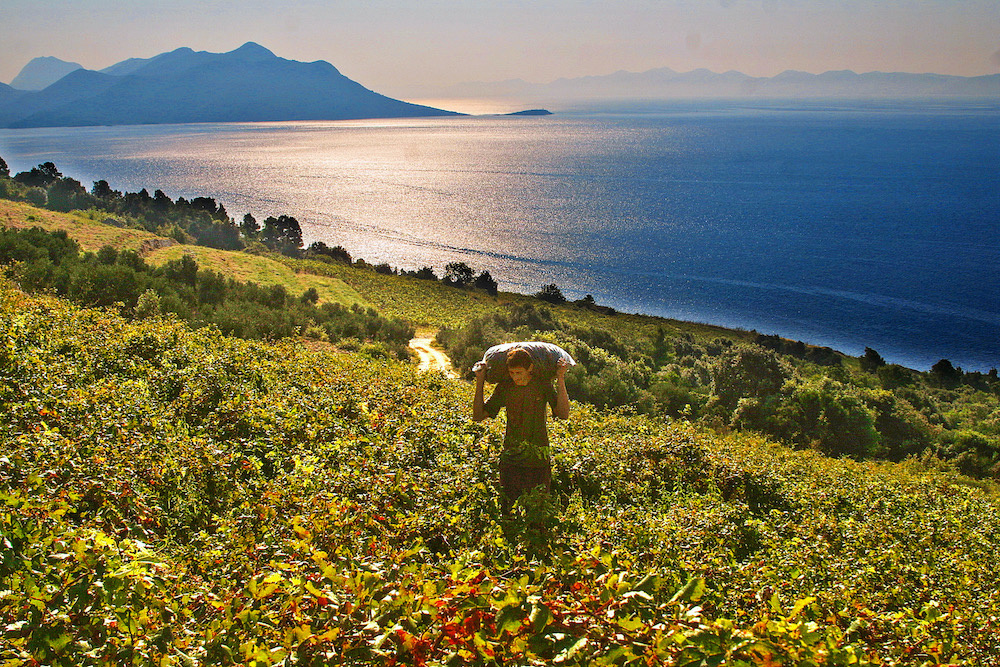
Dalmatia is perhaps the most famous part of Croatia. Tourists flock here for the turquoise Adriatic, countless islands and historic cities such as Split and Dubrovnik. The region stretches along Croatia’s southern coastline, a narrow strip of land caught between the sea and the rugged Dinaric Alps. With its Mediterranean climate, rich history and abundant sunshine, Dalmatia is a paradise for winemaking.
The Greeks and Romans were the first to bring viticulture here. In the Middle Ages, the Venetians developed the wine trade, exporting Dalmatian sweet wines to Venice and beyond. Later, under Habsburg rule, winegrowing was further professionalised: new techniques and regulations were introduced, and improved infrastructure made it possible to export Dalmatian wines across Central Europe. This transformed the region from a local tradition into an international wine player.
Dalmatia has a classic Mediterranean climate: hot, dry summers and mild winters. The rocky soils and the constant influence of the sea give the wines their concentration, character and distinctiveness.
The undisputed king of Dalmatian red wines is Plavac Mali – literally “little blue”. It is a natural cross between Dobričić and Crljenak Kaštelanski, the latter being the ancestor of both Italian Primitivo and Californian Zinfandel. Plavac Mali produces bold, robust wines with firm tannins, dark fruit and a touch of Mediterranean spice. The steep southern slopes of the Pelješac peninsula, especially the Dingač and Postup vineyards, are home to some of the most legendary examples.
The most important white grape is Pošip, originally from the island of Korčula but now widely planted along the Dalmatian coast. Pošip produces full-bodied, aromatic wines with notes of ripe stone fruit, citrus and Mediterranean herbs – the perfect companion to fish and shellfish, which are abundant in this region.
Dalmatia is also home to many other native grapes. Maraština (also known as Rukatac) produces lighter, fresh white wines that pair beautifully with Mediterranean cuisine. On the island of Hvar, the rare Bogdanuša thrives – its name means “gift from God”. The wines are light, crisp and aromatic, ideally suited to warm summer evenings by the sea. Other local specialities include Debit, Grk and Vugava, each contributing to Dalmatia’s rich wine mosaic.
One of Dalmatia’s most iconic wines is Prošek, a traditional sweet wine made by drying the grapes to concentrate sugars and aromas. Several grape varieties can be used, including Plavac Mali, Pošip and Maraština. The result is a luscious, honeyed wine, often enjoyed with desserts or on festive occasions.
Within the European Union, the name “Prošek” is controversial because of its similarity to Prosecco. In the Netherlands, this wine is therefore sold under the name Vina Dalmato, ensuring that this centuries-old tradition continues to be celebrated.